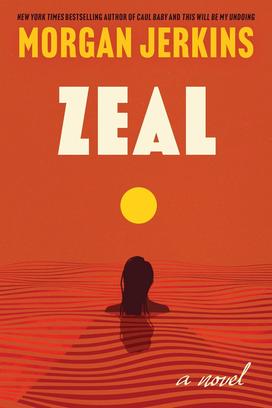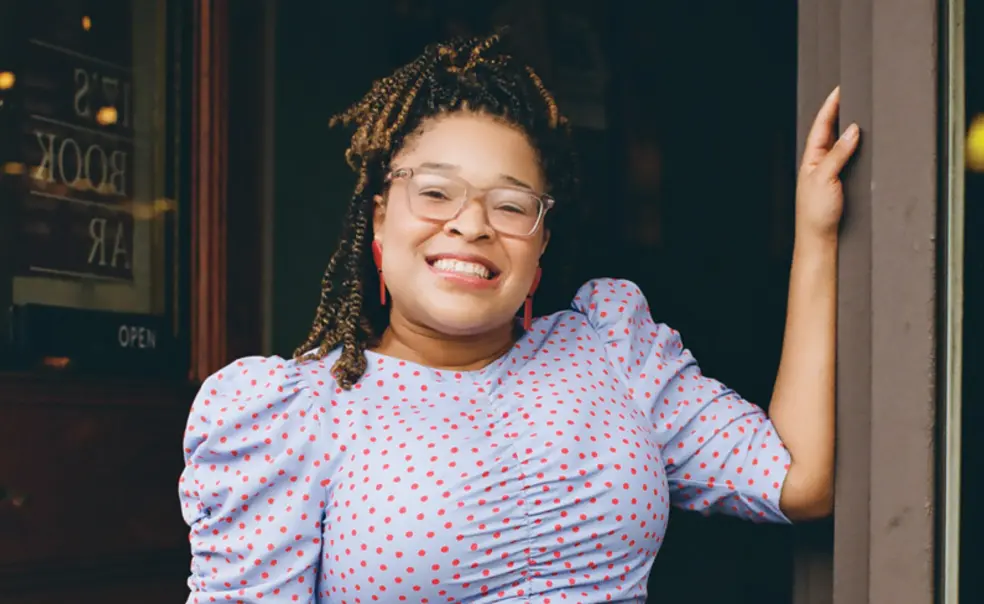Morgan Jerkins ’14 Explores Love Across Generations in New Novel
During the pandemic, Morgan Jerkins ’14 met the paralysis and isolation of the moment by writing something bigger than anything she had written before: an epic Black love story spanning over 150 years and six generations. “I could not have written Zeal without having gone through something,” she says.
Zeal is Jerkins’ fourth and most ambitious book and she’s taken great leaps in both her writing process and how she’s ushered it into the world. “I had to reorient myself to a publishing world that has changed in staggering ways since I released my first book in 2018,” she says. Over pepperoni pizza in the Soho neighborhood of New York City Jerkins describes a publishing scene with far fewer opportunities than when she started as a professional writer 10 years ago. “It’s like that scene in Hustlers where there’s a windfall of cash and then the club shuts down,” she explains.

Two years after graduating from Princeton with a degree in comparative literature and right before getting her MFA from Bennington College, Jerkins landed her first book deal. The book, which was a series of essays entitled This Will Be My Undoing: Living at the Intersection of Black, Female, and Feminist in (White) America became a New York Times bestseller. Five years later, she had published two more books — a nonfiction account of her family’s roots during the Great Migration and a novel set in Harlem. During that time, she also worked as a journalist. “I worked like a West Point cadet,” she says, describing a regimen of writing 1,000 words every day before getting up to use the bathroom or eat. “I would say to myself, ‘You are a writer living in New York City, there are so many people who want this life.’”
To tackle a historical fiction novel like Zeal, Jerkins had to change her tack. “My speed until that point had been ferocious and I knew I had to let my nervous system relax. You can’t write about love if you are in fight or flight.” During the long, sequestered days of COVID, Jerkins sunk into research and decided to interview research assistants. She hit if off with Barrye Brown, a curator at the Schomburg Center for Research in Black Culture, who emailed Jerkins a copy of a letter, dated 1863, from an enslaved man to his wife on a different plantation, assuring her of his enduring love. That sparked the plot for Zeal, which begins with a modern-day engagement party in Harlem during which the groom-to-be reads to his beloved a similar letter that has been passed down through his family.
Jerkins knew she’d also have to change her tack in thinking about Zeal’s release. “In 2018, when my first book came out, there was a lot of money, more outlets for reviews, more events. I knew it would take a village — in-house with Harper Collins and with outside publicist Lauren Cerand — for Zeal to succeed.” In addition to widespread reviews online and in print, Jerkins wrote essays about the book and did podcast interviews. Her book tour has included a conversation with MacArthur Fellow and National Book Award winner Jacqueline Woodson at The Free Black Women’s Library in Brooklyn.
In Jerkins’ research for Zeal, she wanted everything to be right — from the way people spoke and what they wore to the birds, the flowers, the tides, the humidity, and the food. “The southern Black American food was a mélange of the influence of French colonialism, the innovation of enslaved laborers, and the ingenuity of Indigenous peoples,” she says. She describes how in her research on vanilla custard pie, a classic southern dish, she learned that the vanilla orchid was cultivated in 1841 by a 12-year-old enslaved boy, Edmond Albius, living in the French colony Réunion. In early June, Liz’s Book Bar in Brooklyn hosted a culinary meet and greet with Jerkins together with Haitian American chef Brigitte Malivert ’14 who prepared dishes from the book. The event sold out within a day. Jerkins sat with her audience and enjoyed dishes like vanilla custard pie, cornbread, and okra chips and then would describe their significance in the book. Unlike the standard author event of doing a reading for an audience, Jerkins says, “This made me think, ‘Maybe I can connect with audiences in different ways.’”
Jerkins says she would consider doing another food event and helping other writers with their events. “I realized that while it can be nerve-racking to be creative on the page, I’m not as nervous about being creative to bring people together.” And in a challenging publishing landscape, “We all need each other,” she says.
In reflecting on her own start in writing, she credits the Princeton professors who believed in her. “Nobody ever told me this will be too hard for you,” she says. Her hope for Black people and others facing adversity was strengthened when a month before Zeal came out, she learned through her own research with online cemetery finders that the lovers from the 1863 letter did eventually find each other.
“I’ve faced a lot of rejection and false starts, and what I would say to writers is that you never know how things can come together,” she says.












No responses yet